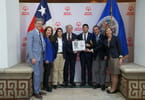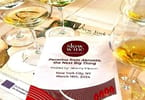In last week’s Travel Law article on developments in the travel sharing economy [eTN July 2, 2014] we discussed the Uber App. A day later it was reported [Scott, London Transport Regulator Says Uber Can Legally Operate (www.nytimes.com (July 3, 2014)] that Transport for London (TFL) had decided to allow Uber “to continue operating in London” in response to a complaint filed by London’s “licensed taxi drivers…that Uber’s technology, which uses a smartphone-based technology to charge customers at the end of the journey based on the length of their trip” violated taxi regulations. TFL disagreed noting that “‘Smartphones that transmit location information between vehicles and operators have no operational or physical connection with the vehicles…(The phones are) not taximeters within the meaning of the legislation’…TFI’s decision follows a region wide protest by thousands of taxi drivers in Europe who say they believe that Uber-which allows people to book taxis through a smartphone application-does not comply with local (taxi) regulations and does not pay enough taxes in the cities where it operates… cabbies in Madrid and Barcelona again took to the streets to protest Uber’s presence, though the service has yet to expand to the Spanish capital. But this is not the final green light for Uber in London. To clarify whether or not Uber’s technology can be considered a meter, (TFL) said it was asking a British court to make a final ruling”. Stay tuned.
“Safe And Worry Free” Vacations
Tour operators may promote and sell their travel services using reassuring language in brochures and on computer screens such as “quality and safe resorts”, “safe and enjoyable cycling area” [Pau v. Yosemite Park and Curry Company (bike rider killed in Yosemite National Park)], “safe route” [Vinikoor v. Pedal Pennsylvania, Inc. (bike rider injured during bike tour in Pennsylvania)], “Marenco’s administration and staff work together to make your stay comfortable, safe” [Mayer v. Cornell University (tourist drowns during bird watching tour in Costa Rica)], “safe and worry free” vacation [Santoro v. Unique Vacations, Inc. (tourists injured in taxi accident while being transported to resort in St. Lucia)], “safe buses” [Rovinsky v. Hispanidad Holidays, Inc. (“fleet of safe buses operated by their experienced staff in Spain”)], “unsinkable” boats to “ultimate destination” [Wolf v. Fico Travel (members of Cutty Sharks Fishing Club traveled to Costa Rica on a fishing expedition…two of the travelers went out on the Don Carlo which capsized ‘due to turbulent and choppy’ waters, one drowned and one swam to shore”)], “highly skilled boatmen” [Chan v. Society Expeditions, Inc. (tour operator may be liable for boating accident based upon brochure language which advertised “Zodiac landing craft[‘s]… versatility and safety at hands of [tour operator’s] ‘highly skilled boatmen’”)], “suitable for handicapped individuals” [Bergonzine v. Maui Classic Charters (cruise line brochure promised special care for handicapped passengers; cruise line liable for failure of crew to assist 350-pound handicapped passenger who breaks ankle disembarking; $42,500 special damages)], “perfectly safe” canoeing conditions [Glenview Park District v. Melhus (canoeist who drowned during trip down river was promised that canoeing would be “perfectly safe”)], “perfectly safe” catamaran ride [Wolff v. Holland America Lines, Inc. (cruise passenger participated in shore excursion “Aqua Terra” and fell off catamaran and injured left wrist)], cliff jumping as “an approved and safe activity” [Hodges v. Premiere International Corp. (“Hodges, 23, a graduate student from England (while on tour) participated in cliff jumping (into a lake) from a height of 65 feet and sustained a skull fracture…and drowned”)] and “safe, healthy and protected environment” [Lang v. Corporacion De Hoteles, S.A. (family in golf cart struck by a truck on the premises of the Casa de Campo resort in Dominican Republic; “We take all of plaintiffs’ allegations as true, that is (tour operator)…assured plaintiffs that they would enjoy a safe, healthy and protected environment during their vacation; that it knew or should have known about the dangerous conditions of the roads/trails where golf carts are operated in the resort; that it negligently failed to warn plaintiffs about said conditions”)].
Puffing And Disclaimers
If the traveler dies or sustains a serious injury and relied upon [see Rovinsky, supra (“material issues of fact are whether (defendant) acted in good faith in its advertising brochure and whether the plaintiff justifiably relied upon the information provided in the brochure”); Ramage v. Forbes International Inc. (tourist suffers injury when motor coach hits bump in road and contends that tour operator “expressly and impliedly breached its warranty of merchantability to provide injury-free travel”; tour operator “contends that the language to which plaintiff cites as creating a warranty come from (its) 1996 brochure, printed after plaintiff’s return from his vacation”)] language which promises of a safe, healthy and protected vacation environment in selecting the travel service, some courts have held such reassuring promises of safety are “mere puffing” [see Heidle v. Interval International U.S.A. (a promise of “‘quality and safe resorts in their network’ (and) Interval’s brochures indicated that Interval, among other things, conducted resort inspections to ensure quality. Nonetheless, a ‘general promise that the trip would be ‘safe and reliable’ does ‘not constitute a guarantee that no harm would befall plaintiff’… Interval’s statements were mere “puffing” and not actionable”); Sova v. Apple Vacations (scuba diving accident; “The language relied on by plaintiff states that the tour has been prescreened for quality and safety by the defendant. It contains no guarantee that the trip will be accident free…The above language also states that ‘we will make sure that your satisfaction is guaranteed and the quality of the product is kept at the highest standards’. These statements can be categorized to some extent as ‘puffing’”) and/or subject to being disclaimed in the tour operator’s release [see Ramage v. Forbes International Inc., supra, (“The question is whether a warranty was made to guarantee injury-free travel; and, if so, whether the disclaimer validly disclaims any liability for such warranty”); Vinikoor, supra (defendant “released from all liability”)].
Breach Of Express Warranty
However, some courts have recognized a cause of action based upon the breach of an express warranty of safety [see McCartney v. Windsor, Inc. (motor coach accident injuring tourist and killing her daughter; “At the time of the accident the coach’s anti-lock braking system was broken, the braking system warning light was broken, the speed limiter had been disconnected, the coach was traveling at an excessive rate of speed, the driver lacked adequate sleep, he was exceeding his driving hour limit and he had never driven the bus before”; plaintiffs “allege that (travel agent) misrepresented the safety of the buses and the experience and skill of the drivers used on the tour, by, inter alia, distributing brochures that falsely tout the safety of the tour”)].
Hanyag félrevezetés
Some Courts have recognized a cause of action based upon negligent misrepresentation in promising safety [see Santoro, supra (plaintiffs assert that defendants negligently misrepresented “that they would provide safe transportation from the airport to the hotel”)].
Kizárás
Some Courts have recognized a cause of action based upon estoppel [see Rovinsky, supra (“whether the nature and content of the brochure circulated by the defendant to encourage plaintiff to purchase sightseeing tours…which would estop it from disclaiming liability”)].
Consumer Protection Statutes
And some courts have recognized a cause of action based upon the violation of a consumer protection statute prohibiting misleading and deceptive business practices such as New York State’s General Business Law § 349 (GBL)[see Vallery v. Bermuda Star Line, Inc. (“Since the [passengers] booked the most expensive cabin, they expected a first class stateroom…The drapes were partly dirty and dingy; the tables painted with white enamel paint with nicotine stains; the headboards of the beds were broken and the mattresses of the beds were concave; a lamp shade had a hole, the light flickered and the knobs of the dressers were broken…The stateroom did not meet the quality as described in the brochure as being special, luxurious and beautiful nor was it exquisite…Defendant’s advertisement… transcended the bounds of a statement of opinion and reached the level of false representations and pretense when the brochure assigned qualities to the stateroom…which it did not possess”)].
Következtetés
While it is clear that the Courts are divided on whether language in brochures or on computer screens regarding promises of safety are mere puffing, disclaimable or actionable, the traveler is well advised to carefully read and investigate the truth and accuracy of all of the promises contained in travel advertising material.
A szerző, Justice Dickerson, 38 éve írt az utazási törvényről, ideértve az évente frissülő törvénykönyveket, a Travel Law, a Law Journal Press (2014), valamint a Nemzetközi kártérítési perek tárgyalása az amerikai bíróságokon, Thomson Reuters WestLaw (2014) és több mint 300 cikket. jogi cikkek, amelyek közül sok elérhető a www.nycourts.gov/courts/9jd/taxcertatd.shtml címen.
Ez a cikk Thomas A. Dickerson engedélye nélkül nem reprodukálható.
MIT KELL ELVENI A CIKKBŐL:
- TFL disagreed noting that “‘Smartphones that transmit location information between vehicles and operators have no operational or physical connection with the vehicles…(The phones are) not taximeters within the meaning of the legislation'…TFI's decision follows a region wide protest by thousands of taxi drivers in Europe who say they believe that Uber-which allows people to book taxis through a smartphone application-does not comply with local (taxi) regulations and does not pay enough taxes in the cities where it operates….
- Com (July 3, 2014)] that Transport for London (TFL) had decided to allow Uber “to continue operating in London” in response to a complaint filed by London's “licensed taxi drivers…that Uber's technology, which uses a smartphone-based technology to charge customers at the end of the journey based on the length of their trip” violated taxi regulations.
- (“Hodges, 23, a graduate student from England (while on tour) participated in cliff jumping (into a lake) from a height of 65 feet and sustained a skull fracture…and drowned”)] and “safe, healthy and protected environment” [Lang v.






















